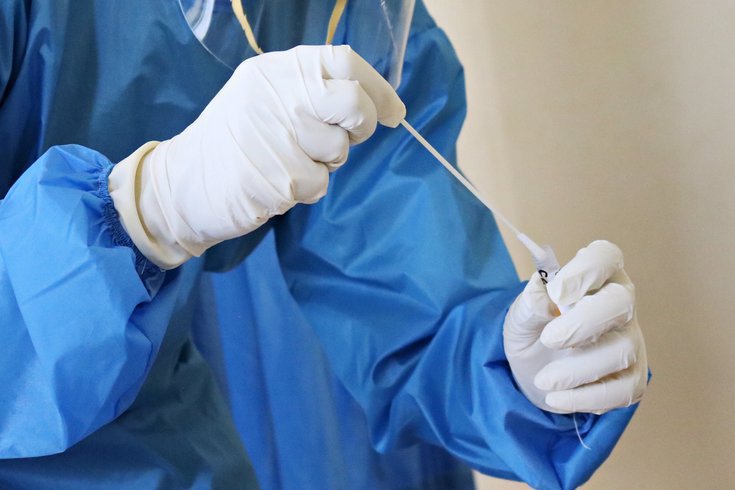
January 26, 2022
 Mufid Majnun/Unsplash.com
Mufid Majnun/Unsplash.com
Philadelphia is averaging just under 1,000 daily COVID-19 cases, far less than earlier this month. That suggests the omicron surge has peaked but transmission remains high.
The number of new COVID-19 cases in Philadelphia has dropped by more than 50% since last week, but Health Commissioner Dr. Cheryl Bettigole stressed that the pandemic "is not over, no matter how much your or I want it to be."
As cases continue to fall across the Northeast, many public health officials believe the surge caused by the highly transmissible omicron variant has peaked. Bettigole said that "appears to be the case" in Philadelphia, but noted that 98% of the city's COVID-19 cases stem from the variant. Still, she said the declining infection rates leave her hopeful.
Philadelphia is averaging 996 daily cases, Bettigole said. That's down from more than 2,000 daily cases last week and well below the 3,570 cases recorded Jan. 12, the high point in the omicron surge. About 12% of tests are coming back positive, down from 45% in early January.
COVID-19 transmission is still considered high in Philadelphia because the city is seeing nearly 1,000 cases per day and has a test positivity rate north of 10%, Bettigole said, referencing guidelines from the U.S. Centers for Disease Control and Prevention.
Last summer, Philadelphia regularly was recording about 50 new cases per day.
Though infections are dropping, city officials have not given a timeline for lifting the vaccine mandate for indoor dining, which went into effect earlier this month, or easing other preventative measures.
The Department of Public Health is releasing a new COVID-19 vaccine dashboard that will better reflect the city's vaccination rates and progress with booster shots, Bettigole said.
The dashboard will now include Philadelphia residents who received their shots in neighboring counties. The city's vaccination rate did not previously include this data. Bettigole stressed that there is no national COVID-19 dataset, and the new dashboard is meant to present a "more accurate picture" of the situation in Philadelphia.
The dashboard also will include a breakdown of booster shots administered to Philadelphia residents. About 33% of fully vaccinated residents also have received a booster shot, but that's relatively low compared to the rest of Pennsylvania, Bettigole said.
"We have been doing a lot of grassroots, granular work in collaboration with community groups to get people vaccinated who didn't necessarily step forward eagerly," Bettigole said, in reference to the lower booster rate.
"One of the challenges people describe is being worried about side effects, for example. Convincing people that they need that additional dose is a bit of a heavy lift for people who weren't that convinced that they wanted to get vaccinated in the first place. The rates are going up steadily, so we'll get there, it's just a matter of directing our efforts using this additional data."
Bettigole lauded the city's vaccination rates, noting more than 95% of adults have received at least one dose and 78.6% of adults are fully vaccinated. Among children ages 5-11, 44.5% have received at least one dose.
Additionally, 88.6% of all people ages 12 and older have received at least one dose. That rate is slightly lower than previously reported due to data errors in assessing data from the state, Bettigole said.
Philadelphia health officials continue to urge the importance of vaccination for any person age 5 and older. The city has its own vaccine finder with available community-based vaccination appointments. There is also a national database available.